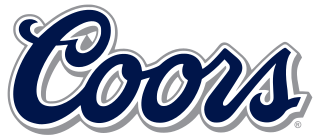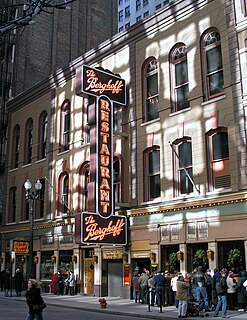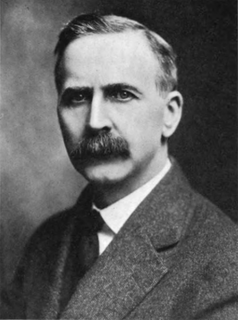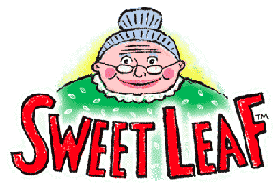
Low-alcohol beer is beer with little or no alcohol content and aims to reproduce the taste of beer while eliminating the inebriating effects of standard alcoholic brews. Most low-alcohol beers are lagers, but there are some low-alcohol ales. Low-alcohol beer is also known as light beer, non-alcoholic beer, small beer, small ale, or near-beer.

The Coors Brewing Company started as an American brewery and beer company in Golden, Colorado. In 2005, Adolph Coors Company, the holding company that owned Coors Brewing, merged with Molson, Inc. to become Molson Coors.

The Heath bar is a candy bar made of toffee, almonds, and milk chocolate, first manufactured by the Heath Brothers Confectionery in 1928. Since its acquisition of the Leaf International North American confectionery operations late in 1996, the Heath bar has been manufactured and distributed by Hershey.

PNC Park is a Major League Baseball stadium located on the North Shore of Pittsburgh, Pennsylvania. It is the fifth home of the Pittsburgh Pirates of Major League Baseball (MLB). It was opened during the 2001 MLB season, after the controlled implosion of the Pirates' previous home, Three Rivers Stadium. PNC Park stands just east of its predecessor along the Allegheny River with a view of the Downtown Pittsburgh skyline. Constructed of steel and limestone, PNC Park features a natural grass playing surface and has a seating capacity of 38,747 people for baseball.

The PNC Financial Services Group, Inc. is an American bank holding company and financial services corporation based in Pittsburgh, Pennsylvania. Its banking subsidiary, PNC Bank, operates in 27 states and the District of Columbia, with 2,629 branches and 9,523 ATMs. PNC Bank is on the list of largest banks in the United States by assets and is one of the largest banks by number of branches, deposits, and number of ATMs.

National City Corporation was a regional bank holding company based in Cleveland, Ohio, USA, founded in 1845; it was once one of the ten largest banks in America in terms of deposits, mortgages and home equity lines of credit. Subsidiary National City Mortgage is credited for doing the first mortgage in America. The company operated through an extensive banking network primarily in Ohio, Illinois, Indiana, Kentucky, Michigan, Missouri, Pennsylvania, Florida, and Wisconsin, and also served customers in selected markets nationally. Its core businesses included commercial and retail banking, mortgage financing and servicing, consumer finance, and asset management. The bank reached out to customers primarily through mass advertising and offered comprehensive banking services online. In its last years, the company was commonly known in the media by the abbreviated NatCity, with its investment banking arm even bearing the official name NatCity Investments.

The Iron City Brewing Company is a beer company that until August 2009 was located in the Lawrenceville neighborhood of Pittsburgh, Pennsylvania, United States. On June 11, 2009, it was reported that the brewery was moving their production to Latrobe, Pennsylvania. That move was completed and Iron City is now produced in the former Latrobe Brewery that was once used to produce Rolling Rock.
Zagnut is a candy bar produced and sold in the United States. It was launched in 1930 by the D. L. Clark Company of western Pennsylvania, which also made the Clark bar. Clark changed its name to the Pittsburgh Food & Beverage company and in 1995 declared bankruptcy, selling Zagnut to Leaf, which was ultimately acquired by Hershey Foods Corporation, in 1996. Its main ingredients are peanut butter and toasted coconut.

The Coffee Bean & Tea Leaf is an American coffee shop chain founded in 1963. Since 2019, it is a trade name of Ireland-based Super Magnificent Coffee Company Ireland Limited, itself wholly owned subsidiary of multinational Jollibee Foods Corporation.
The 5th Avenue is a candy bar introduced in 1936, consisting of peanut butter crunch layers enrobed in chocolate. It is produced and marketed by The Hershey Company.

RBC Bank is the trading name of RBC Bank (Georgia), N.A., the United States-based retail banking division of the Royal Bank of Canada (RBC) which is targeted toward Canadian snowbirds, expatriates, and frequent tourists. Despite its limited reach, RBC Bank is a federally chartered bank, thus its trading name bears "N.A." letters.

Necco was an American manufacturer of candy created in 1901 as the New England Confectionery Company through the merger of several small confectionery companies located in the Greater Boston area, with ancestral companies dating back to the 1840s.

The Berghoff restaurant, at 17 West Adams Street, near the center of the Chicago Loop, was opened in 1898 by Herman Joseph Berghoff and has become a Chicago landmark.
The Clark Bar is a candy bar consisting of a crispy peanut butter/spun taffy core and coated in milk chocolate. It was the first American "combination" candy bar to achieve nationwide success. Two similar candy bars followed the Clark Bar, the Butterfinger bar (1923) made by the Curtiss Candy Company and the 5th Avenue bar (1936) created by Luden's. The Clark Bar was introduced in 1917 by David L. Clark and was popular during and after both World Wars. It was manufactured in Pittsburgh, Pennsylvania, by the original family-owned business until 1955. It was then manufactured by corporate owners until a series of sales and bankruptcies in the 1990s resulted in transfer of production to the Revere, Massachusetts–based New England Confectionery Company (Necco). Following Necco's 2018 bankruptcy, the Clark Bar is now produced in western Pennsylvania, by the Altoona-based Boyer Candy Company.

Farley's & Sathers Candy Company was created as an umbrella company to roll up many small companies, brands and products under a common management team. The confectionery business segment is made up of many small companies, often with intertwined relationships and histories.

David Lytle Clark was an Irish entrepreneur who founded the D. L. Clark Company confectioners in 1886 in Allegheny, Pennsylvania, now part of Pittsburgh. He was born in County Londonderry, Ireland, the son of Samuel and Jane Clark. He had come to the U.S. with his family from Ireland when he was eight years old, and educated in the public schools. He began making candy in a one-room location in Allegheny City at the age of 19, and later expanded into making gum when learning in 1886 of a new approach using chicle. This he would use bright food coloring and flavor it with extracts of woodland leaves he had chewed as a boy. He is best known for his creation of the D. L. Clark Company, a confectionary, and for creating some of its best known products, including the Clark bar and the Zagnut, as well as for its spinoff, the Clark Chewing Gum Company with its Clark's Teaberry gum.

The D. L. Clark Company was founded in 1886 in Allegheny, Pennsylvania, now part of Pittsburgh, by David L. Clark (1864–1939), an Irish-born candy salesman. In 1921, Clark Brothers Chewing Gum Company was spun off as a separate corporation. In 1955, when the family-owned D. L. Clark company was sold to Beatrice Foods, they had production facilities in Pittsburgh and Evanston, Illinois. Beatrice sold it in 1983 to Leaf, and they in turn sold Clark in 1991, though Leaf retained the rights to Clark's Zagnut and P. C. Crunchers bars. The new owner, entrepreneur Michael P. Carlow, would operate it under the umbrella of the Pittsburgh Food & Beverage Company.

Sweet Leaf Tea Company is a producer of ready-to-drink organic branded teas and lemonades, owned by Nestlé and headquartered in the Penn Field Business Park in the South Congress area of Austin, Texas. It was founded in Beaumont, TX in 1998 by Clayton Christopher and David Smith. Sweet Leaf Tea is sold in 16 oz recyclable aluminum cans, 16oz glass, 12oz PET and 20oz PET at specialty grocers across the United States.

ReaLemon is an American brand of lemon juice that debuted in 1934, and is manufactured and marketed as of 2016 by Mott's, part of Keurig Dr Pepper. ReaLime is a brand of lime juice that debuted in 1944, is produced in the same manner as ReaLemon, and is also produced and marketed by Mott's.

Bun Bars are a line of candy bars manufactured by Pearson's Candy Company of Saint Paul, Minnesota, and available in the United States. Despite the name, Bun Bars are not bars at all, but actually round and flat, containing a disc made of maple or vanilla-flavored creme, or caramel, coated in milk chocolate and topped with a roasted peanut-chocolate cluster.

















